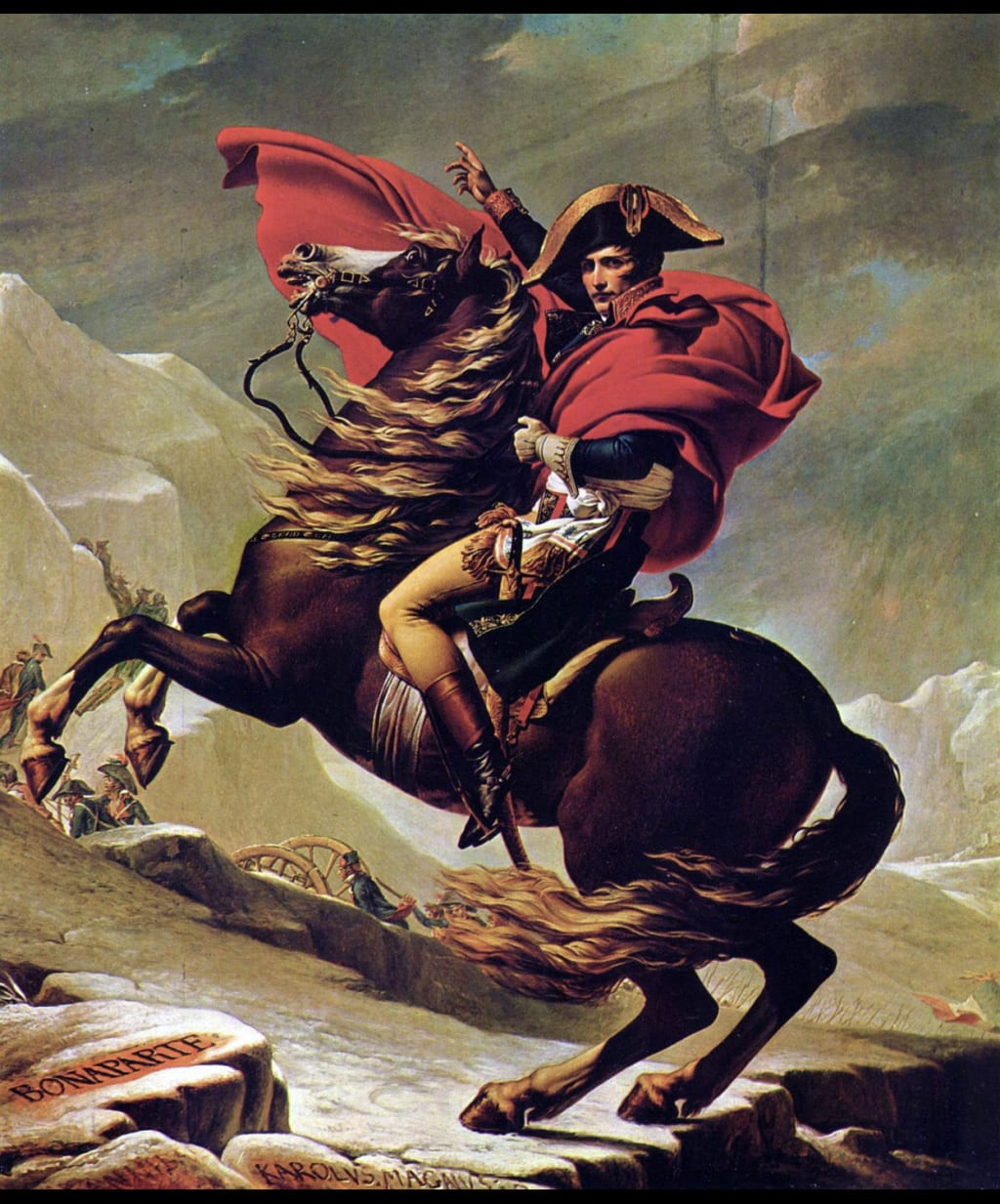11 reasons Napoleon Bonaparte lost the battle in The Battle of Waterloo
Find out the truth and understand the reasons for his lost

Napoleon's defeat and ultimate downfall can be attributed to several key factors. Here are some reasons why Napoleon lost the war in France:
1. Overextension of Empire: Napoleon's conquests had led to the establishment of a vast French Empire, which stretched across much of Europe. Maintaining control over such a large territory proved challenging, as the French forces were stretched thin and faced significant resistance from various nations seeking independence.
2. Coalition Warfare: Napoleon faced a series of coalitions formed by European powers, including Russia, Britain, Austria, and Prussia, which united against him. These coalitions were motivated by a desire to balance French power and restore the pre-Napoleonic order in Europe. Facing multiple adversaries with considerable resources and manpower put a strain on Napoleon's forces.
3. Invasion of Russia: In 1812, Napoleon launched a disastrous invasion of Russia, known as the Russian campaign. The Russian strategy of employing scorched-earth tactics, coupled with the harsh winter and the vastness of the Russian territory, took a heavy toll on the French army. The retreat from Russia was a significant blow to Napoleon's military power, depleting his forces and diminishing his aura of invincibility.
4. Guerrilla Warfare: As Napoleon's forces occupied territories across Europe, they faced frequent insurgencies and guerrilla warfare from local populations. These irregular tactics made it difficult for the French army to maintain control and exert its influence effectively. The guerrilla warfare further drained Napoleon's resources and weakened his hold on occupied territories.
5. Naval Blockade: The British Navy's effective blockade of French ports limited Napoleon's ability to trade and weakened the French economy. The blockade restricted resources and supplies from reaching France, leading to economic hardships and hindering Napoleon's ability to sustain his war effort.
6. Leadership and Strategy: Towards the later stages of the Napoleonic Wars, Napoleon's decision-making and military strategy came under scrutiny. Some argue that he became more overconfident and less effective as a military leader. Additionally, his failure to adapt to changing warfare tactics, such as the effective use of guerrilla warfare by his opponents, put him at a disadvantage.
7. Exhausted Resources: The continuous wars, rapid expansion, and constant military campaigns had exhausted France's resources, both in terms of manpower and finances. The French population was war-weary, and the financial strain of sustaining the war effort became increasingly unsustainable.
8. Loss of Allies: Over time, Napoleon's aggressive expansionism and his attempts to impose French rule alienated former allies and potential supporters. The loss of diplomatic alliances and the creation of new enemies further weakened Napoleon's position.
9. Strategic Mistakes: Napoleon made several strategic errors that contributed to his defeat. One notable example is his decision to invade Spain in 1808. The Spanish resistance, aided by British forces, inflicted significant losses on the French army and tied down troops that could have been deployed elsewhere. This diversion of resources weakened Napoleon's overall military strength.
10. Lack of Popular Support: As the Napoleonic Wars continued, Napoleon faced diminishing support from the French population. The heavy taxation and conscription policies required to sustain the war effort generated discontent among the people. Napoleon's image as a conqueror and autocratic ruler also led to growing opposition and nationalism in conquered territories. The lack of popular support and rising resistance hindered his ability to maintain control and effectively fight against the coalitions aligned against him.
11. Peninsular War: The Peninsular War, fought primarily in the Iberian Peninsula (Spain and Portugal), drained French resources and diverted attention from other fronts. The Spanish guerrilla fighters, with support from British forces, engaged in a protracted war against the French. The Peninsular War tied down a significant number of French troops, further weakening Napoleon's forces and exposing vulnerabilities in his military
These factors, combined with a series of military defeats and the eventual abdication of Napoleon, culminated in his loss in the war in France.





Comments
There are no comments for this story
Be the first to respond and start the conversation.